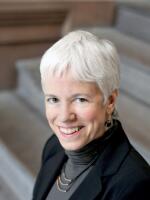A case heard Monday by the U.S. Supreme Court and to be decided later this year could have a big impact on public worker unions in New York.
The case, known as Janus v. AFSCME, was brought by Mark Janus, a public employee in Illinois, who is challenging his state’s policy of requiring that he pay union dues to the Illinois branch of the American Federation of State, County and Municipal Employees, even though he does not want to be a member.
Janus and his lawyers say the mandatory payments violate his First Amendment right to not be compelled to fund political speech.
Ken Giardin, with the fiscal watchdog group the Empire Center, says the reasoning in the case is that the union, through collective bargaining and other lobbying activities, finances speech that is intended to influence the government.
“The question is whether money taken from people against their will can be used to lobby the government in any form,” Giardin said.
Union leaders see it as a more than a simple constitutional issue, and say it’s an ideological threat to their existence. Mario Cilento, the leader of New York State’s AFL-CIO, says Janus’s legal fees are subsidized by several groups funded by major figures in the conservative movement, including the Koch Brothers.
“None of these organizations are necessarily friendly to organized labor,” Cilento said. “Those in the top 1 percent in corporate America do not like the fact that unions not only improve the lives of working men and women but they raise the standard of living and quality of life for all working people."
He says a survey by the federal Bureau of Labor Statistics finds that union members make on average $11,000 more a year for comparable jobs. And he says the presence of higher paid union workers in a job market helps boost the pay of the nonunion workers.
If Janus wins the case, the Empire Center’s Giardin says it could weaken New York’s public worker unions, which represent around 1.2 million people. New York’s unions, just like in Illinois, also compel around 200,000 state employees who are not union members to pay about $110 million in dues each year. The dues are automatically deducted from their paychecks. And he says a significant percentage of current union members might choose to leave the union once the dues are no longer mandatory.
“What you’d also see is a group of people who had signed membership cards, let’s say 15 percent of them, who would immediately leave their union,” he said.
But Giardin says there’s also an opportunity for unions to provide better services to the members who do stay, in the hopes of attracting more members.
There are a number of bills introduced in the New York state legislature, including by Independent Democrats in the Senate, that could mitigate the impact of a Supreme Court decision in favor of Janus. They include steps to make it easier to join a union, and harder to opt out, says the AFL-CIO’s Cilento.
“There are things you can do to streamline the process for those who want to be a member of a union,” Cilento said. “Basically mitigate some of the damage that this could cause down the line.”
Governor Andrew Cuomo, who’s been at odds with some of the state’s unions in the past, has in recent years become an ardent supporter of union rights. Cuomo spoke at a rally in New York City over the weekend.
“If the Supreme Court carries Donald Trump's political water, and if the Supreme Court tries to end organized labor, this state will do everything in its power to protect it,” Cuomo told a cheering crowd.
But Cilento admits that New York law can’t supersede a federal court decision.






